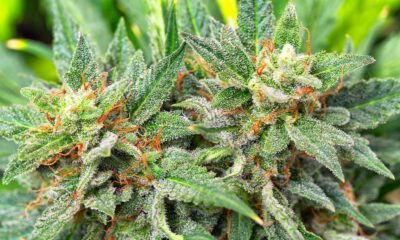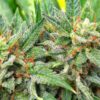
Joint Opinions
Despite Studies, Florida Law Enforcement Still Lying to Public
Despite a lack of a legalization initiative on the California ballot this year, I have been watching the embers of reform flame across the nation. The most notable one is the fight surrounding the Amendment 2 Medical Marijuana Ballot Initiative in Florida that is widely supported by the voters but derided by the Drug Free America folks with the help of law enforcement. I went to the Florida Sheriff’s Association (FSA) website to read their resolution in opposition and noted the mischaracterizations and lies included in their statements:
· Of the 20 states with the highest driver acknowledgement of drugged driving, 15 were states that have passed legislation legalizing marijuana;
· Twenty-five percent of all fatal vehicle accidents in the U.S. involve marijuana; and
· The Los Angeles and Denver police departments have reported significant increases in crime since marijuana was legalized in their respective states.
As law enforcement professionals you would think that the FSA would have first gone to the National Highway Traffic Safety Administration (NHTSA) that said this about drug testing surrounding marijuana drivers, “It is inadvisable to try and predict effects based on blood THC concentrates alone, and currently impossible to predict effects based on THC-COOH concentrations.”
Further reading reflected that the NHTSA cautioned that drug presence does not necessarily imply impairment. While clearly expressing that “for many drug types, drug presence can be detected long after any impairment that might affect driving has passed. For example, traces of marijuana can be detected in blood samples several weeks after chronic users stop ingestion… whereas the impairment effects for various concentration levels of alcohol is well understood, little evidence is available to link concentrations of other drug types to driver performance.”
No one that supports medical marijuana and safe access for patients supports patients driving under the influence of either marijuana or any other substance. But to mischaracterize the statistics does a disservice to the professionalism of law enforcement.
As for the claim that 25 percent of all fatal accidents in America involve marijuana, one need only to read this article in Time Healthland which reflected that a FARS analysis of fatal single-vehicle traffic accidents (1998-2009) showed that 25 percent of all drivers tested positive for all drugs, (not just marijuana) with cocaine, amphetamine and marijuana as the most prevalent present in toxicology reports.
But the authors also stated, “alcohol is still the largest contributor to fatal crashes,” yet we know that although more drivers may be testing positive for the presence of marijuana, that has not equated to an increase in the number of fatal traffic accidents across the states.
In fact Washington and Colorado have seen declines in traffic fatalities, while California, which first adopted medical marijuana in 1996, has seen a decrease in traffic fatalities every year since 2005. In California the Mileage Death Rate is at 0.84 and continues to fall below the national average.
As for the crime and marijuana link attributed to Denver and Los Angeles I will use this quote from Police Chief Charlie Beck from the Los Angeles Police Department who famously stated “Banks are more likely to get robbed than medical marijuana dispensaries.”
But if Chief Beck’s word isn’t good enough for the sheriff’s they could also look at multiple studies that have concluded that there is no medical marijuana dispensary crime nexus.
A 2011 study by the RAND Corporation disproved the common misconception that medical marijuana dispensaries attract crime. In a study of crime near Los Angeles dispensaries, RAND found that after dispensaries were required to close, crime nearby actually increased. A 2012 UCLA study titled Exploring the Ecological Association Between Crime and MMD Medical Marijuana Dispensaries found that “density of medical marijuana dispensaries was not associated with violent or property crime rates.”
While a recent study at the University of Texas at Dallas examining federal data not only confirmed legalizing medical marijuana didn’t lead to increases in crime, but also found that it may actually lead to decreases in some types of violent crime.
Furthermore, a 2013 study by the University of Colorado at Denver School of Public Affairs answered the question Do Medical Marijuana Centers Behave Like Locally Undesirable Land Uses? The research reflected that “lawfully regulated storefront operations impact on a neighborhood was no greater than other retail business, and that the media and law enforcement itself exaggerated the undesirability of storefront operations.”
It’s with this statement that if scientific research isn’t good enough for Florida law enforcement how about the first quarter Part-1 Crime Statistics from Denver where there has been a reduction in the overall crime rate by 5.2 percent as compared to 2013?
The FSA actions remind me that they could learn from the open and honest testimony of another sitting, elected sheriff of King County, Wash., John Urquhart, who identified a longstanding issue in law enforcement: that of hubris. Sheriff Urquhart posited:
“We — the government — have failed the people and now they want to try something else. Too often the attitude of the police is ‘We’re the cops and you’re not. Don’t tell us how to do our job.’ That is the wrong attitude and I refuse to fall into that trap.”
Law enforcement and political leaders should accept and learn that we serve our constituents not the other way around.
The FSA loses credibility as it screams like “Chicken Little” that the pot apocalypse is coming, while ignoring facts and research to the contrary. Clearly the voters in Florida have discerned the lies as they continue to overwhelmingly support medical marijuana (88 percent are in favor) despite the onslaught of false information from law enforcement.


























